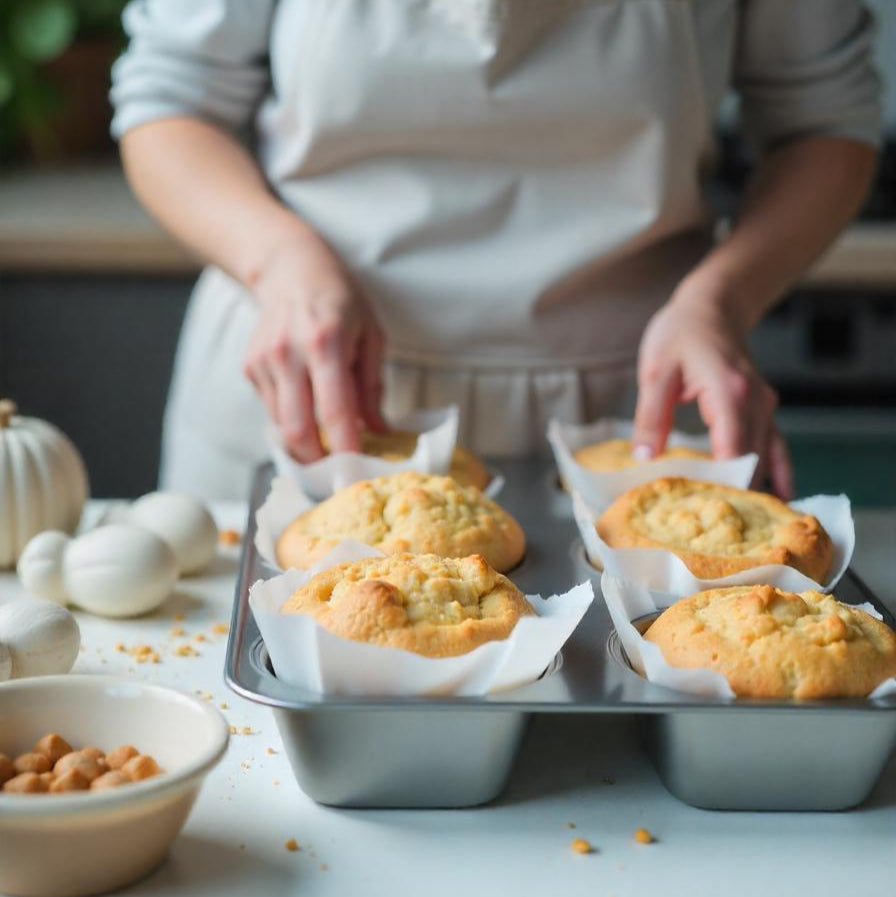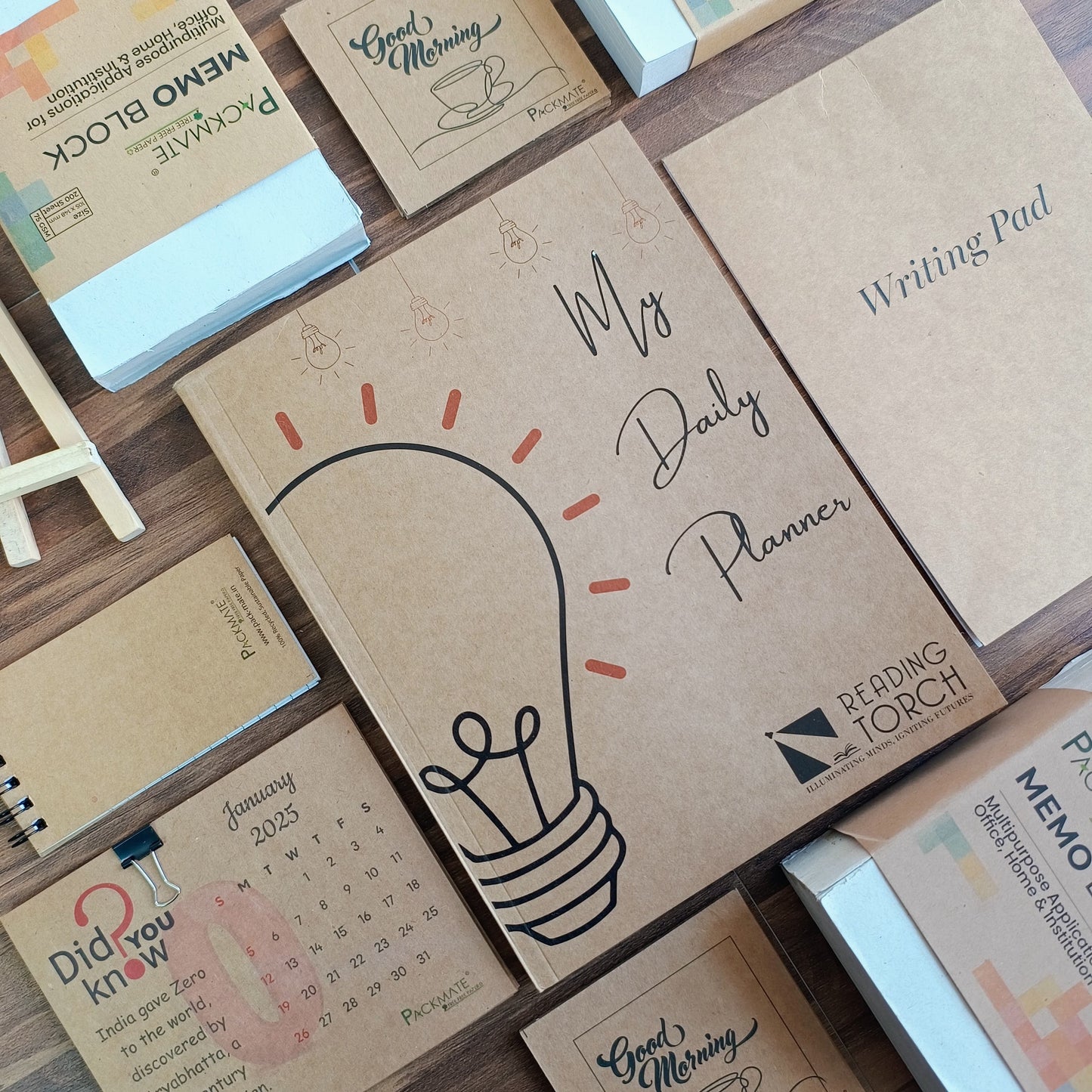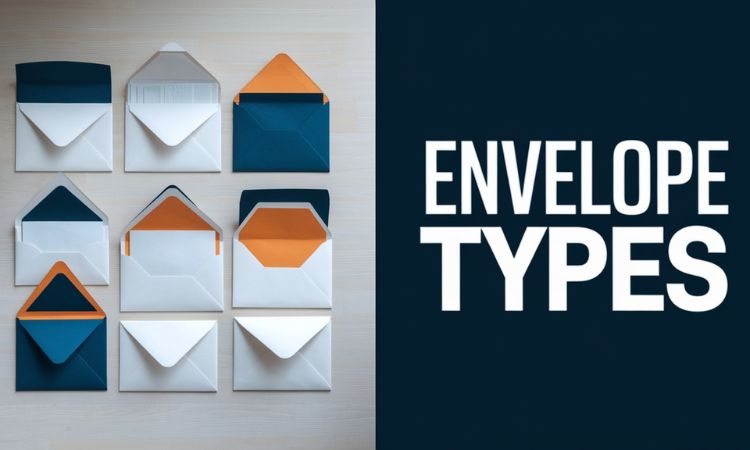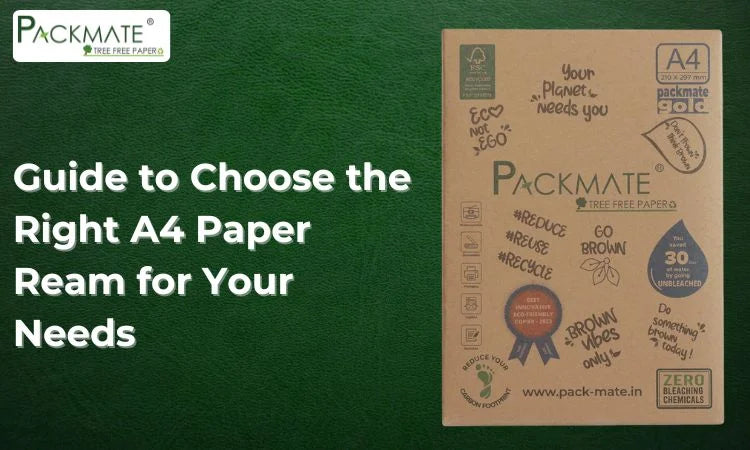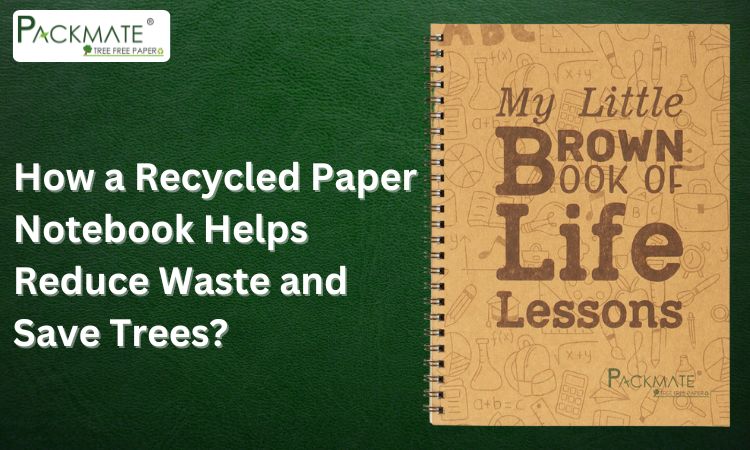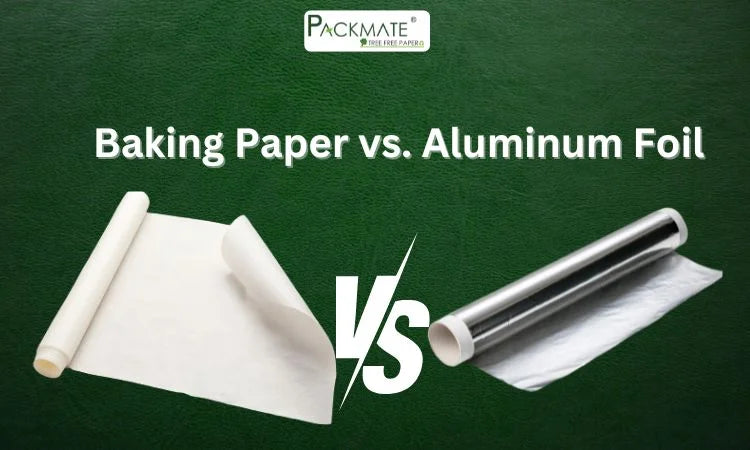
Baking paper, also known as parchment paper, and aluminium foil are essential kitchen tools, each serving different purposes in cooking and baking.
Baking paper is non-stick and heat-resistant, typically coated with silicone to prevent food from sticking and to simplify cleanup. It is ideal for baking cookies, cakes, and other delicate items that require a smooth release.
Aluminium foil, on the other hand, is known for its heat-reflecting properties and is widely used for food storage and cooking. It helps retain heat and moisture, making it useful for roasting, grilling, and wrapping food.
Both materials can be used to line baking trays, cover dishes during baking to prevent over-browning, and wrap food to keep it fresh. They also help ensure even cooking by preventing hotspots, improving texture and flavor.
Using the right material for the right purpose can enhance cooking efficiency, reduce food wastage, and simplify cleanup.
What is Baking Paper or Parchment Paper ?
It is a non-stick, heat-resistant paper often used for baking and cooking. Baking paper is coated with silicone, which gives it its non-stick properties.
What is Aluminium Foil?
Aluminium foil is a thin, flexible sheet of aluminium used for wrapping, covering, and cooking food. It is known for its heat conductivity and durability.
What Are the Key Differences
Heat Resistance
- Best baking paper withstands high oven temperatures (up to ~420°F/215°C) without burning.
- Aluminium foil can handle higher heat, including direct flames, and is best for grilling.
Non-Stick Properties
- Baking paper is naturally non-stick, perfect for sticky or delicate foods.
- Aluminium foil requires oil or spray to prevent sticking.
Primary Uses
- Baking paper excels at lining trays and steaming.
- Aluminium foil is ideal for covering dishes, grilling, and storage.
Advantages and Disadvantages Baking Paper and Aluminum Foil
Advantages of Baking Paper
- Non-stick surface, heat-resistant, versatile for baking and roasting, safe no chemical reactions with food).
- With a non-sticky feature of baking paper, it prevents food from sticking to baking sheets or pans which makes cleanup easier and ensures baked goods retain their shape.
- The baking paper helps to distribute heat more evenly prevents over-browning or burning, and promotes consistent baking.
- Best baking paper can be used for a wide range of baking tasks, including cookies, pastries, cakes, and even roasting vegetables.
- The baking paper acts as a barrier between the food and the baking pan that prevents sticky residue from adhering.
-
Baking paper allows food to breathe which prevents food from becoming soggy or overly dried out.
Disadvantages of Baking Paper
- Best baking paper is more expensive than aluminium foil and is not reusable.
- Best baking paper can burn or char if exposed to direct high heat or flames.
- It is difficult to achieve a tight seal with baking paper which is necessary for certain cooking methods.
- Baking paper is not recyclable and can end up in landfills.
Advantages of Aluminium Foil
- Aluminium foil is affordable, reusable if cleaned properly, and also withstands very high heat.
- Aluminium foil provides a strong barrier against moisture, air, and light, which helps to preserve the freshness of food and prevent spoilage.
- Aluminium foil can withstand high oven temperatures therefore it is suitable for cooking and baking.
- Aluminium foil can be easily shaped and molded in different shapes and sizes to fit various baking vessels and food items.
- Aluminium foil is the best option for grilling and roasting vegetables or food items in the oven.
- Aluminium foil is generally more affordable than parchment paper.
Disadvantages of Aluminium Foil
- Aluminium foil is not suitable for all foods as it can react with acidic foods, such as tomatoes or citrus fruits that will affect the taste or appearance of the food.
- When aluminium foil is exposed to high heat or acidic foods, aluminium can leach into the food and can lead to serious health issues.
- Aluminium foil is not suitable for microwaves as it can cause sparks and fires.
- Aluminium foil is non-biodegradable and can take a long time to decompose, which harms the environment.
Best Uses for Baking Paper and Aluminium Foil
Baking Cookies: Baking paper wins with its non-stick surface, ensuring easy removal is the best choice for baking cookies.
Roasting Vegetables: Baking paper prevents sticking, promotes even cooking and can be used for roasting vegetables.
Grilling: Aluminium foil is better for grilling as it can handle direct heat and flames and becomes an ideal choice for grilling.
Lining Baking Sheets and Pans: The primary use of baking paper is to line baking sheets, pans, and even muffin tins to prevent baked goods from sticking, making cleanup easier.
Preventing Stickiness: Baking paper creates a non-stick surface that helps baked goods slide off easily without tearing or breaking.
Protecting Baking Pans: Lining baking sheets with parchment paper can help protect them from scratches and wear and can be used for a long time.
Baking in Parchment Envelopes: Best baking paper can be used to wrap fish, meat, or vegetables for baking as it will create a steam pocket that results in moist and tender food.
Environmental Impact of Baking Paper and Aluminium Foil
Environmental impact of baking paper
Sustainable Alternatives: Unbleached parchment paper, especially those with natural wax coatings can be a more sustainable option than aluminium foil.
Biodegradable and Compostable: Unbleached parchment paper is compostable and biodegradable.
Lower Energy Consumption: The production of paper from sustainable sources requires less energy than the production of aluminium foil.
Considerations: Bleached parchment paper may not be as environmentally friendly as some parchment paper may contain chemicals that could leach into food.
Environmental impact of aluminium foil
Energy-Intensive Production: The process of extracting aluminium from bauxite ore and manufacturing foil requires significant energy that contributes to greenhouse gas emissions and environmental degradation.
Recycling Challenges: While aluminium is recyclable, not all foil is recycled, and even when recycled, the process can be complex and energy-intensive.
Potential for Contamination: Aluminium foil waste, if not appropriately managed, can contaminate soil and water. Also, certain acidic foods can react with aluminium, potentially leaching harmful metal traces into the food.
Non-Biodegradable: Aluminium foil doesn't break down naturally in landfills.
Conclusion
Baking paper has sticky properties and it can be a good option for non-stick baking and roasting. The baking paper makes cleaning easier and gives a good experience in cooking, especially for those who have less time to work in the kitchen. whereas aluminium foil can withstand heat and become the best choice for grilling and covering food. Aluminium foil can be used for wrapping food, preventing spills and retaining the taste of food.
Also aluminium foil can be used for wrapping and covering food in different containers with different shapes and sizes and it can be mould easily in different shapes. Baking paper and aluminium foil are the common things used in the kitchen for a variety of purposes, thus one can select to use baking paper or aluminium foil based on their cooking needs, budget, and eco-preferences.
If you prefer an environmentally friendly alternative for baking and cooking, choose Packmate – your go-to brand for premium eco-friendly baking paper!

